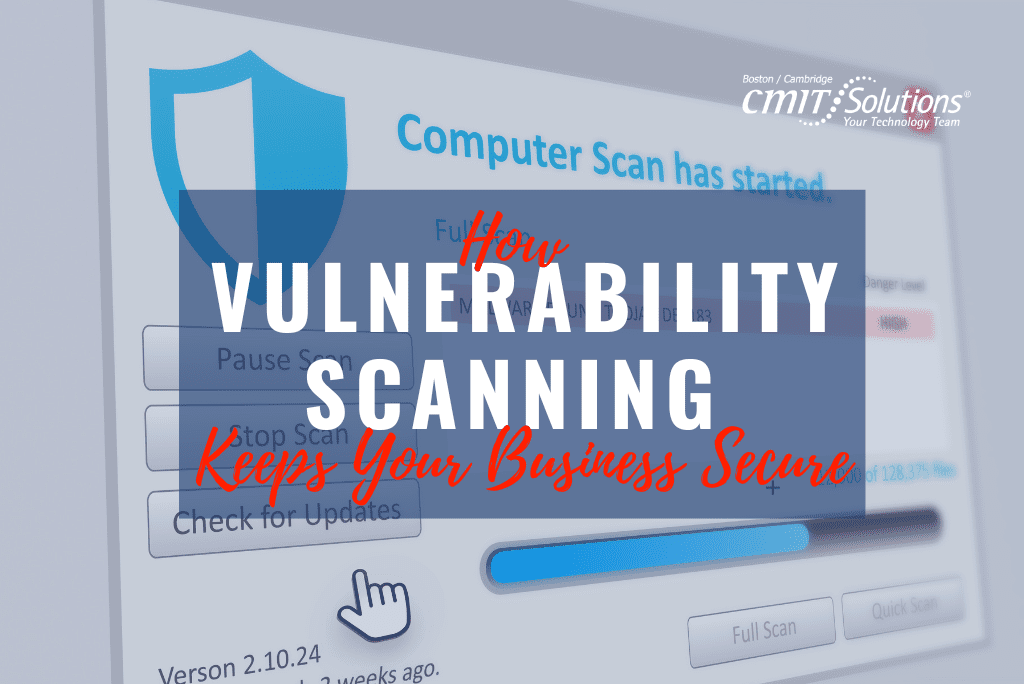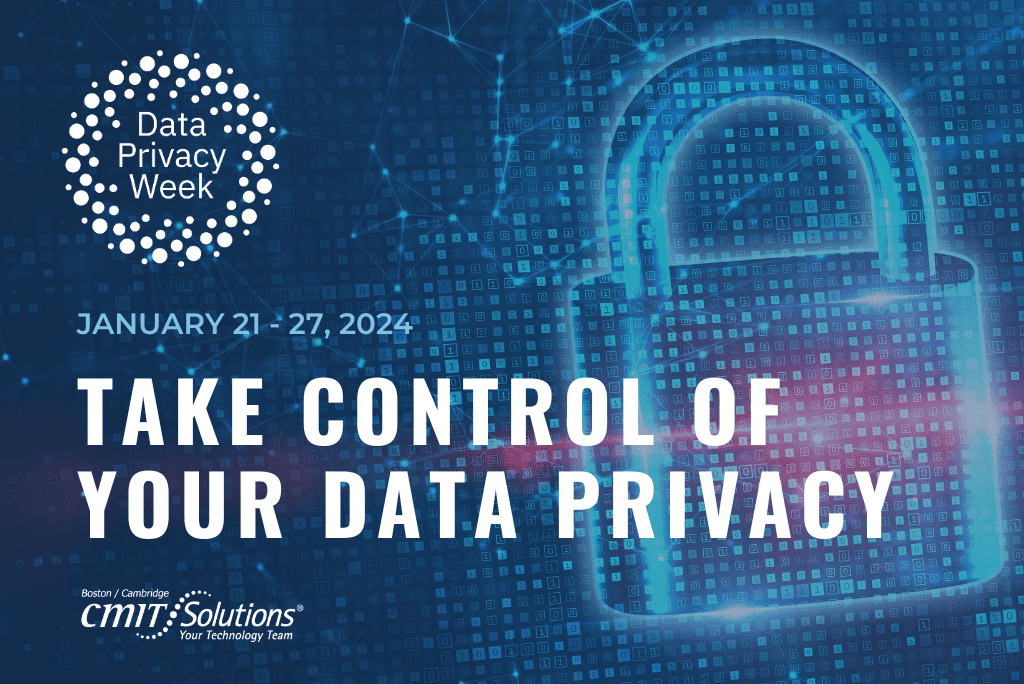Not all AI tools are created equal. Artificial intelligence has revolutionized how businesses operate, offering tools to automate tasks, streamline processes, and make data-driven decisions. While some of these applications are indispensable, others could compromise your business’s efficiency, data security, or compliance. Knowing which AI apps to avoid can save you time, money, and potential legal headaches.
Here, we’ll walk through five types of AI tools businesses should avoid or use cautiously, along with the red flags to watch out for. CMIT Boston Cambridge strongly advises users to contact their IT department for clarification on the acceptance of AI in their organization before installing or using any products.
1. AI Tools with Poor Data Privacy Policies
One of the top concerns for businesses using AI is data privacy. Many AI tools developed for personal or casual use may lack the robust security and compliance measures required in a business context. Skipping over these features could lead to significant risk, including data breaches or privacy violations that damage trust with your customers and employees.
ChatGPT (free version) and DeepSeek
ChatGPT is a powerful AI tool for generating text-based responses, but the free version has limitations when it comes to data privacy. User inputs are not confidential and have the potential to be stored and used to train the model further, raising concerns for businesses handling sensitive or confidential information. You can disable your chat history, but that does not guarantee confidentiality. Paid users have access to features like temporary chats, which delete conversations after 30 days, and can opt out of having their data used for training, according to PIRG. Without enterprise-level privacy controls, it’s not recommended for secure or compliance-driven environments. AI-powered platforms like DeepSeek provide significant advantages, but they also introduce serious security risks that business leaders must consider.
FaceApp and Similar AI Face Tools
AI tools like FaceApp that manipulate facial features pose significant privacy issues. These apps are fun for personal entertainment but shouldn’t be used for professional purposes, especially involving employee or customer data. Their data-handling practices can be opaque, leading to concerns about the ownership and storage of the images uploaded.
Takeaway
Stick to AI tools that offer clear documentation on how they handle data and meet compliance requirements such as GDPR or CCPA. Verify that they include end-to-end encryption and robust access controls.
2. Overhyped but Underperforming Tools
The AI space is flush with tools that promise groundbreaking solutions, but some fall short of delivering value, wasting valuable resources in the process.
AI-Powered Content/Image Generation
Tools that promise to create high-quality content or images with minimal input can be misleading. While AI can generate text, it often lacks the creativity, nuance, understanding of the target audience, and expertise that human writers possess. In many cases, AI-generated content can even be inaccurate. Similarly, AI-generated images may appear impressive at first glance but can often contain subtle inaccuracies, unrealistic details, or fail to align with the intended purpose or context.
AI-Driven Marketing Automation
Some AI tools claim to automate entire marketing campaigns, but they often require significant human oversight and adjustments to ensure they align with the business’s goals. AI can assist with tasks like data analysis and audience segmentation, but ultimately, human input is crucial for crafting effective marketing strategies.
Takeaway
Do thorough research before investing in an AI tool. If a tool’s marketing promises far outstrip its reviews or case studies, or if it seems like it’s lagging behind modern innovations, proceed carefully.
3. AI Apps Lacking Business-Grade Security or Support
Using free, open-source tools or third-party plugins may seem enticing, but many of these lack the reliability, security, and customer support needed for business use.
Free/Open-Source Chatbots with No Moderation
Certain GPT clones and no-cost chatbot platforms are a gamble in the business world. Chatbots are great for simple customer service tasks, but they often struggle with complex issues or specific customer needs, which can cause more frustration than convenience. They also tend to lack proper moderation and security measures, exposing customer or proprietary data to leaks or malicious misuse. Without robust support or maintenance, they could also crash under pressure.
Unvetted Browser Extensions and AI Plugins
There’s no shortage of browser extensions promising AI productivity enhancements. However, many aren’t thoroughly vetted. Some have been known to log keystrokes or leak sensitive data. They are often poorly maintained, increasing the risk of bugs and security vulnerabilities over time.
Takeaway
Choose AI tools with proven track records, dedicated support systems, and business-level security certifications. Avoid free solutions that don’t explicitly detail their privacy or data handling practices.
4. Tools That Can Mislead or Violate Compliance
Certain categories of AI tools are rife with ethical and legal risks. These tools can jeopardize your reputation or expose your business to compliance violations.
AI Deepfake Voice and Video Generators
Products like Descript’s Overdub or similar tools can simulate voices and create deepfake videos. While these may have valid creative use cases, using them unethically or without securing proper consent can spiral into serious legal issues and trust violations.
AI Resume Screening Tools
AI tools used in human resources, particularly for recruiting, are under increasing scrutiny. A case in point is Amazon’s AI recruiting tool, an early attempt at using machine learning to screen resumes, which was shelved due to gender bias. Such tools can inadvertently reflect biases inherent in their training data, potentially violating equal opportunity employment laws.
Takeaway
Know your limits when using AI. Tools that manipulate sensitive data or automate decision-making without transparency should be used sparingly and with compliance oversight.
5. Niche AI Tools That Don’t Scale or Integrate Well
Even if an AI tool promises an attractive feature, make sure it works well within the broader context of your business systems. Tools that lack robust integration or scalability options may cost you more in effort than they deliver in value.
AI Scheduling Bots with Limited Integrations
Some small-scale scheduling tools promise AI-powered convenience but don’t sync properly with Google Calendar, Microsoft Outlook, or other collaborative platforms. This lack of integration makes them inconvenient and impractical for enterprise-grade use.
Low-Quality AI Design Tools
AI-powered design platforms marketed as “AI graphic designers” often produce generic, uninspired visuals. These may fall short of delivering brand-consistent, high-quality content for professional marketing purposes.
Takeaway
If a tool doesn’t integrate with platforms you already use or support your long-term scaling needs, it’s best to look elsewhere.
General Red Flags to Avoid
Avoid any app that:
- Lack of clear documentation or technical/customer support
- No transparency on how data is stored and handled
- Unrealistic promises (e.g., “Replace your entire sales team with AI!”)
- Doesn’t integrate with your existing tools or workflow
Smart Choices = Smart Results
At CMIT Boston Cambridge, we currently don’t recommend any AI solutions other than Microsoft Copilot, which needs to be approved by the user’s organization. While AI can greatly enhance your business operations, not every tool is suitable for enterprise use. Being selective ensures you invest in reliable, scalable solutions that truly add value to your processes. At CMIT Boston Cambridge, we believe in empowering businesses with smarter decision-making when it comes to AI adoption. If you’re unsure whether a specific AI tool is the right fit for your business, don’t hesitate to reach out to your IT department or contact us—we’re here to guide you.
Written by: Chris Zambuto | Chief Information Security Officer @CMITBostonCambridge




